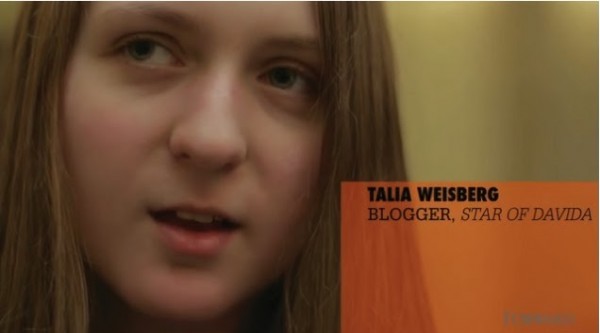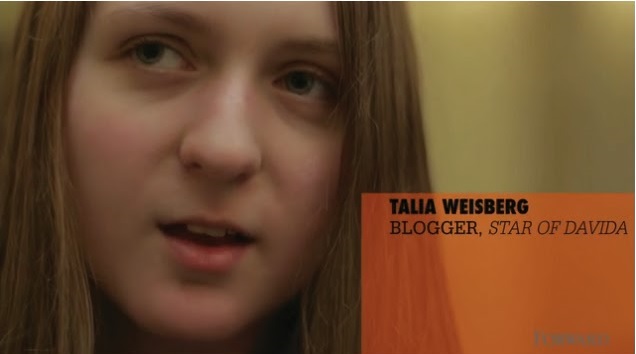
When I walked into the 2010 Jewish Orthodox Feminist Alliance (JOFA) conference, I was 14, bright-eyed and bushy-tailed, and a newcomer to the feminist movement. Although I am now 18, slightly jaded, and been an active feminist for a few years, I was still extremely excited to attend the 2013 JOFA conference on December 8.
On Feminism and Ageism
Although I identify as a feminist, I am the first to admit that the movement is not perfect; internal and external sources have both rightly accused feminism of lacking intersectionality. As a straight, white, upper middle class young woman, the only way this has impacted me firsthand is through ageism. When I first entered the movement as a teen, it was so disheartening when people at feminist organizations would ignore emails after I disclosed my age, or give me weird looks at conferences, as if to ask “what’s that kid doing here?” These were not the sort of words I wanted to see practically etched on people’s faces.
I am happy to say that I don’t think many 14-year-olds entering the movement today will have the same experience as I did. At least, any 14-year-old who gets involved in JOFA won’t. I could really see the effort made to create space for young feminists at the recent JOFA conference. When registering, there was a discount for people under 30, and a specialty track for students in high school to discuss issues pertinent to that age group. Several sessions aimed at the entire JOFA community, including the opening plenary, featured speakers who are in college. Although some of these sessions revolved around gap years and college, others, like the panel I was on, focused on issues of interest to the feminist community at large.
On Speaking at a “Grown-Up” Conference
When JOFA tapped me to be on a panel titled “Blogging for Change,” I literally began to cry tears of happiness. I couldn’t believe that they wanted me to speak at the conference. Like, me? Really? Are you sure? I’m just a kid with a blog. I get mad about sexism and rant about smashing the patriarchy and dismantling the rape culture. When I write, my words are informal, just whatever I feel like putting on the page. I’m not, like, an expert or anything. Some of my role models, feminists and activists who I admire and aspire to be like and try to emulate, have spoken at JOFA conferences. And you want me to speak along with them?
I feel so fortunate to know that JOFA has confidence in my ability to keep up with the “grown-ups,” even if I can’t wrap my head around being one. It was an honor to speak on this panel, and I am so grateful to have had this experience. I thought I was going to feel nervous beforehand, but the anxiety never came. I actually really enjoyed talking about my experiences with blogging and opinions on social change. The conversation felt very organic, and the audience was extremely engaged, asking a lot of thought-provoking questions during the Q-and-A session. It was humbling to know that about 25 people came to this session because they were interested in what I had to say. It was even more humbling to know that they found my words powerful enough to mull them over and ask questions about them.
On Words
Beyond my own panel, I really enjoyed all of the sessions I attended. I had been looking forward to the conference for months, and it really did not disappoint. Although one might think that Orthodox feminism has a very narrow focus, it is really a multifaceted issue; I went to sessions about Orthodox women musical artists, eating disorders, slut-shaming, and Women of the Wall. Although these are diverse topics, a common thread in all of them was the importance of the spoken word. At the first session, I found out that music is heard differently when performed by two Orthodox women for an all-female audience, how women react differently when not subjected to the male gaze. Next, I learned how the words women use to speak about weight and their bodies can be healing or toxic to themselves and the people around them. I then heard details about how the word slut can destroy a girl or young woman’s sense of self, regardless of her actual sexual experience. Finally, I discovered that although God loves the words of every prayer, not every human approves.
As Jews are the People of the Book, I guess it’s not surprising that so many speakers at a Jewish conference underscored the import of words and speech. We are a People of words, a People that uses speech and debate and argument to develop our individual and collective identities. I believe that Orthodox Judaism can only be strengthened by questioning the tradition, especially as it relates to women’s status, and reaccepting it with a better understanding. This will certainly fortify the collective Orthodox community and better individuals’ connection to God. I feel privileged to affiliate myself with JOFA, the organization facilitating this change.
Talia Weisberg is a student at Harvard University.

